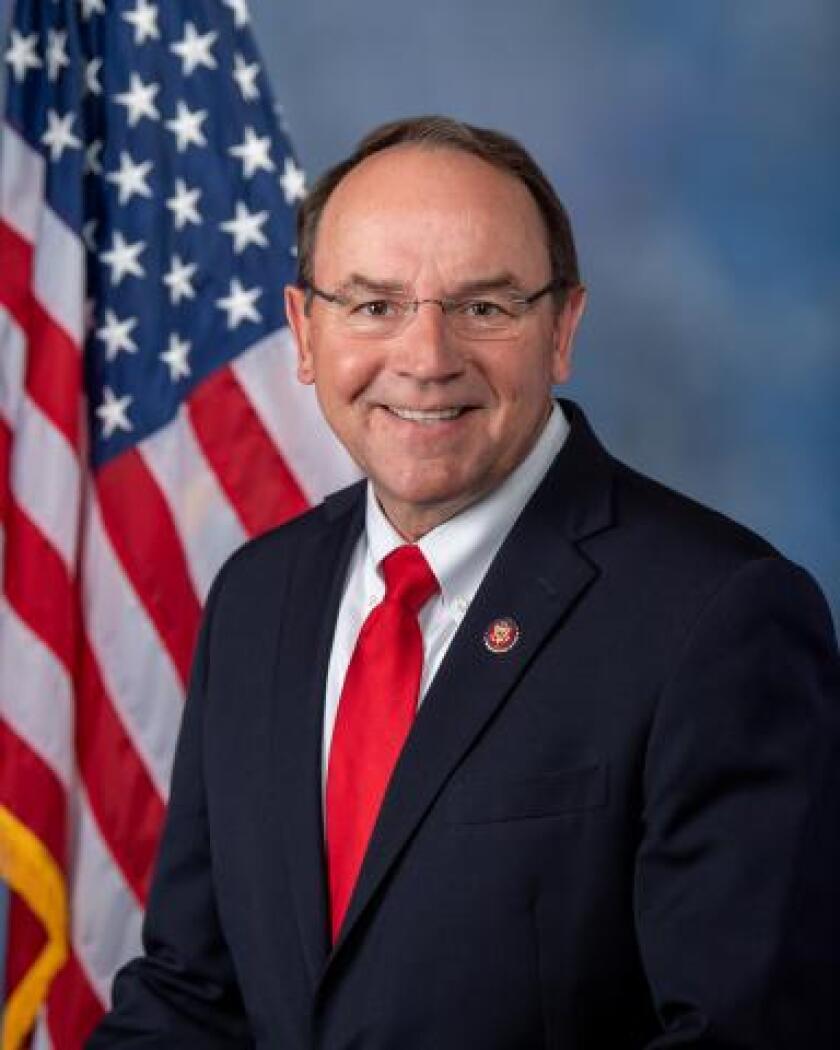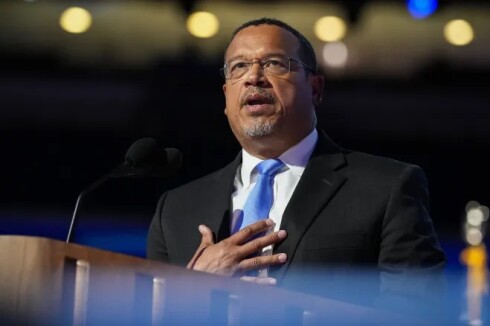Opposition is growing over a proposal to redesignate the Apostle Islands National Lakeshore as Wisconsin’s first national park.
Local governments and the Red Cliff Band of Lake Superior Chippewa have come out against the bill introduced in July by Republican U.S. Rep. Tom Tiffany, who has said it would increase tourism and attract more visitors.
ADVERTISEMENT
The Red Cliff Band of Lake Superior Chippewa issued a statement earlier this month about a lack of information, appropriate consultation and study of the proposal’s impacts. Just last week, the Bayfield City Council passed a resolution in opposition to the bill that detailed similar concerns. Bayfield County’s executive committee passed a nearly identical resolution opposing the bill on Thursday. The county board will take it up on Tuesday.
Local officials have raised concerns about the proposal’s effects on the environment, tribal treaty rights, housing and infrastructure. Bayfield Mayor Ted Dougherty said the city is at capacity between balancing tourism with demands on infrastructure.
“We’re having difficulty finding staff. Staff are having difficulty finding housing, and this bill was proposed without any transparency,” Dougherty said.
Tiffany said the designation would be an opportunity to show off the islands and elevate tourism spending in the region.

“We heard from many economic development people, and there’s been one or two, like … the mayor of Bayfield that said, ‘No, we don’t want any more tourism,’” Tiffany said. “Most people are saying yes, though.”
Tiffany has pointed to 21 letters of support from communities, lawmakers, local chambers and economic development agencies in northern Wisconsin. Some, but not all, reflect identical form letters expressing support for the designation.
ADVERTISEMENT
“Redesignation to a national park will expand the reach of our tourism and marketing efforts and make Hayward not only a premier regional destination, but also attract visitors from across the nation,” wrote Hayward Mayor Gary Gillis.
Those sentiments were echoed by Taylor Pedersen, president and CEO of the Superior-Douglas County Area Chamber of Commerce.
“Economically, the designation of the Apostle Islands as a national park would create new job opportunities in tourism and conservation, stimulating economic growth and diversifying the local economy,” Pedersen wrote.
A spokesperson with Tiffany’s office highlighted that visitor spending nearly doubled as more people visited Indiana Dunes following its redesignation to a national park, growing from roughly $77 million in 2018 to $141 million in 2022.
Local officials like Mary Dougherty, a Bayfield County supervisor who chairs the county’s executive committee, question whether that economic development will come at a cost. She expressed concerns about the effects of increased visitors on emergency services that largely rely on volunteers, stressing the need for a feasibility study of the proposal.
“There’s just a lot of things that have downstream impacts that can cause a lot of disruption for the folks that live on the Bayfield Peninsula,” she said. “Those two things need to be in balance, which is our visitor experience and the folks that live here.”
Local and tribal officials say there hasn’t been meaningful outreach surrounding the proposal. Without appropriate consultation, the Red Cliff tribe said it must oppose the bill.
ADVERTISEMENT
“The Tribe is open to working with lawmakers on issues that ultimately impact Gaa-Miskwaabikaang (Red Cliff), its tribal membership, and our natural resources,” the tribe said in its statement . “However, the Tribe cannot justify this bill to our community. The Tribe must know the potential impacts to our members’ treaty rights.”
Tiffany told WPR his staff had robust outreach with the tribe and its consultant.
“We have been assured by the National Park Service that this does not diminish any existing treaty rights that are there, but we are willing to add an amendment to this to reinforce that we will not be diminishing treaty rights as a result of this bill being passed into law,” he said.
Washburn Mayor Mary Motiff said she would like to see that stated in the bill, but she still doesn’t support the proposal at this time.
“There’s not enough resources currently for them to support a staff that can provide the services needed for the National Lakeshore,” Motiff said.
The number of people visiting the Apostle Islands increased more than 65% between 2011 and 2021 when a record of nearly 291,000 people visited the park following the COVID-19 pandemic. In recent years, those numbers have declined to roughly 250,000 visitors. While the numbers fluctuate every year, the long-term trend shows more people are visiting the park compared to levels seen prior to the ice caves going viral on social media in 2014.
At the same time, the lakeshore is down six positions from fiscal year 2010 with 38 full-time employees, and its budget has increased by only about $300,000 to $3.4 million.
ADVERTISEMENT
Wisconsin’s Green Fire has taken a position against the bill. Board member Susan Hedman noted that Lake Superior has been listed on the 2024 No List by the international travel guide Fodor’s due to tourism’s effects on water quality and sufficiency. The publication cited the discovery of PFAS in rainbow smelt in the Apostle Islands.
“It’s already a situation where it’s being cited as a situation with overtourism,” Hedman said. “In addition, these are just really fragile ecosystems that in many cases require work to protect and restore them, and there isn’t sufficient funding for that.”
The group is calling on Tiffany’s office to address the park’s $66 million backlog of deferred maintenance to address existing needs and reiterated calls for an independent study of the proposal.
A spokesperson for Tiffany said the legislation will undergo a “rigorous” legislative review, adding the backlog is related to agency mismanagement rather than insufficient funding. His office said designating the Apostle Islands as a national park is one of the best ways to secure more federal funding for conservation programs and infrastructure improvements.
ADVERTISEMENT
Wisconsin Public Radio can be heard locally on 91.3 KUWS-FM and at wpr.org.
© Copyright 2024 by Wisconsin Public Radio, a service of the Wisconsin Educational Communications Board and the University of Wisconsin-Madison
______________________________________________________
This story was written by one of our partner news agencies. Forum Communications Company uses content from agencies such as Reuters, Kaiser Health News, Tribune News Service and others to provide a wider range of news to our readers. Learn more about the news services FCC uses here.










